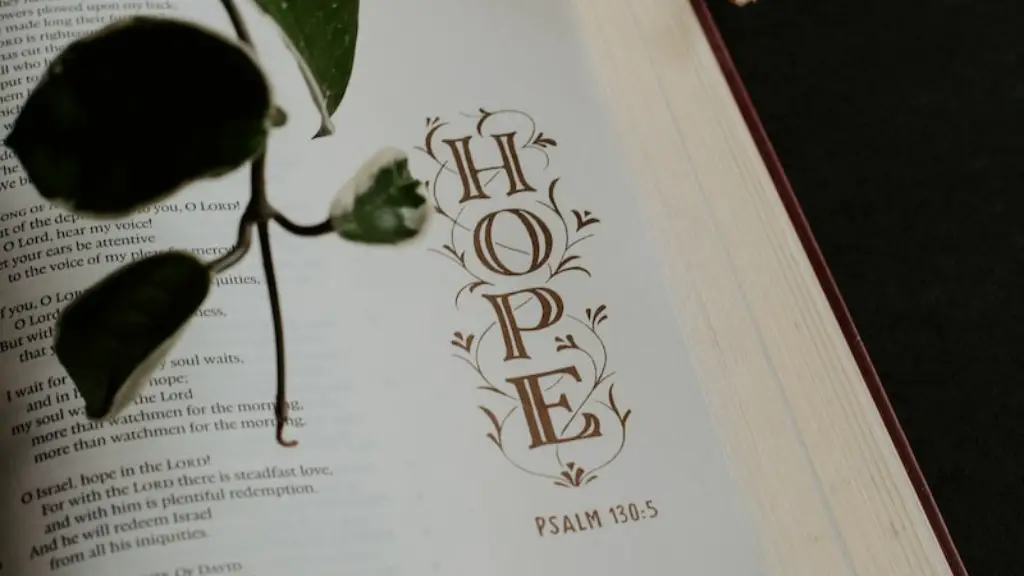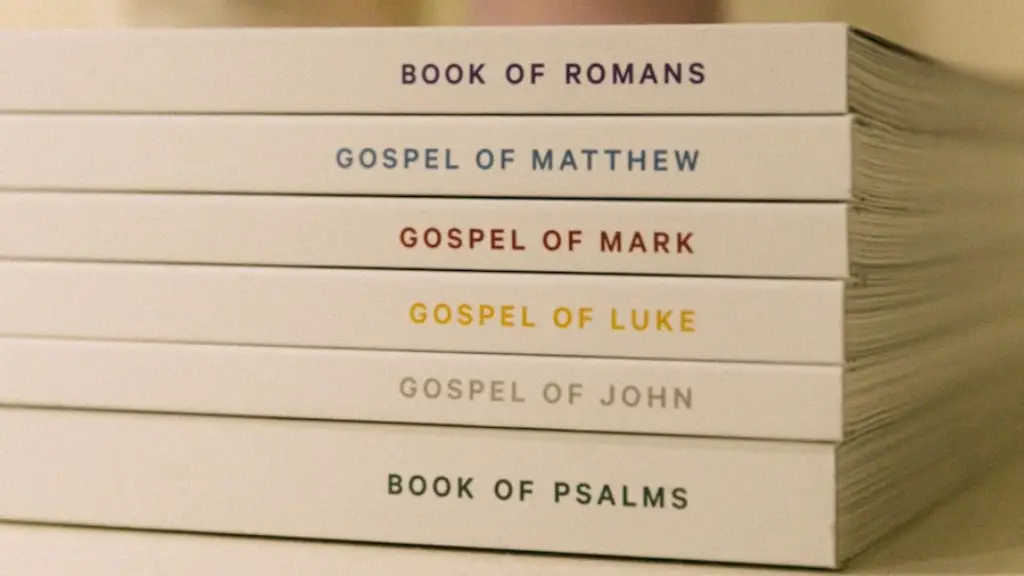The Technically Correct Answer
If we are looking for a technical answer to the question of “How many races are there in the Bible?” the correct answer is that there is no exact number of races in the Bible. This is because the Bible is a collection of various books written by a variety of authors across many centuries — some were written in Hebrew and some were written in Greek. Each book could discuss race in its own unique way, and there is no definitive answer given in the Bible as to how many distinct races there are.
However, what the Bible does make clear is that people of all backgrounds and nationalities are beloved children of God, made in His image. Thus, the Bible encourages its readers to regard all people as equal in the sight of the Lord, no matter the race or nation of origin. From Genesis to Revelation, this important message is repeated and built upon — ultimately, that all human beings are of value and worth in the eyes of God.
Judaism and Exodus
One can draw from several scriptures to observe the Biblical stance on human races. In the book of Exodus, for example, God explicitly makes a promise to the nation of Israel outlining their history and destiny. God promises to bring the nation of Israel out of slavery and into the Promised Land. This definition of the nation of Israel as the “chosen people” of God is further revisited throughout the Bible, and is often seen as a moment of spiritual unity between the Jewish nation and its divine creator.
Therefore, this “chosen race” as outlined by Exodus may offer an initial definition of a “Biblical race”. However, it is important to remember that this concept of nationhood and chosenness applies exclusively to the nation of Israel.
Race and Slavery
Race becomes a more relevant topic in relation to the story of Joseph and his brothers in the book of Genesis. In this story, Joseph is sold into slavery as a young child by his jealous brothers. Joseph is then sold again as a slave to a wealthy Egyptian official, and it is this period and scene of slavery that lends itself to the idea of different races and nations existing in the Bible.
In the story, Joseph is described as being of “Hebrew” or “Israelite” origin, while his captors are identified as “Egyptian”. This implies that while Joseph’s race was discernible and distinct in the eyes of his captors, his identity was still only defined in terms of his national background and heritage.
The Tower of Babel
The issue of race is also discussed in the story of the Tower of Babel in Genesis 11. Here, the people of the world gather in one location after a great flood and attempt to build a tower to Heaven. In response, God decides to “confuse their language” so that the people will not be able to understand each other — thus, scattering them and sending them away to different nations.
The story of the Tower of Babel is quite often interpreted to imply the existence of a “central race” which God is punishing and thus ends up scattering to other nations and lands. Subsequently, the various nations and languages that arise to fill the Earth might each be viewed as a “race” or “people group” of some kind.
New Testament Perspectives
By the time of Christ, race and nationhood take on a different role in the Bible. In the New Testament, Paul is able to identify “Greek” and “Jew” as two distinct people groups. He further advocates an “in-between” state, in which he encourages the Jews and Greeks to become “God’s new creation in Christ”. In this way, the distinctions between race and nation are reduced, though still identifiable.
In addition to this, the New Testament speaks frequently about being united as “one body” in Christ — implying that the primary identity given by Christ is membership to the body of believers, rather than a racial identity. This does not necessarily replace racial identity altogether, but it does redefine it in light of the gospel and the new covenant with God.
Revelation’s Depiction of Heaven
The culmination of the discussion on race takes place in the book of Revelation. Here, the beloved author is given a glimpse into Heaven, a place where there is no division on the basis of image (Revelation 7). The heavenly multitudes are described as a “great multitude that no one could number”, “from every nation, from all tribes and peoples and languages”.
This idea is revisited several times in the New Testament, typically in association with the glorifying of Heaven — it is a place of no divisions, but rather unity and dwelling in God. So while the Biblical texts may offer conflicting and diverse images of what constitutes a “race”, the ultimate conclusion drawn from these texts is a call for unity, reconciliation and belovedness in the sight of God.
Language and Religion in Bible World
A few other passages in the bible elaborate on the use of language in its sense of affiliation and religion. Acts 2:5-11 speaks of the different people coming from around the world who heard the apostles speak in their own languages. This strongly suggests a recognition of distinct cultural and social similarities between the people present at the time, in which language plays a considerable role for identification.
The story of the Tower of Babel is another great example where the “confusion of tongues” is used to confound and thwart humanity from reaching its ultimate goals, which is interpreted to be a sign of divine displeasure. This further reinforces the idea of language, at least in the time frame of the bible’s writing, being of tremendous importance and influence to identify groups more distinctly and give a sense of definition to human races at the time.
Views of Ancient Greek and Modern Viewpoint
From an academic, ancient Greek viewpoint, Greek philosophers such as Plato and Aristotle outlined a binary model of ‘species’ and ‘races’ and placed great importance on the binary’s ethical implications. In Plato’s definition, he identified two categories of race and species, one being the ‘quasi-human’ beings, and the other the ‘true humans’. In the eyes of these philosophers, this binary is set in stone, and not something which can be changed or altered easily.
Modern academics, however, have sought to challenge these traditional views of ‘race’. They view ‘race’ not in terms of an innate, fixed and binary system, but rather as a social construct, or a device which is used to set social boundaries and other economic differences. In this context, there are no true races, and any attempt to categorize humans into strictly defined ‘races’ is seen as a misrepresentation and ‘othering’.
Comparison with Other Religious Views
It should also be noted that the Bible is more progressive than most other religious texts with regards to race. Islam, for example, considers race to be of much more importance, assigning special attributes to those of Arabian descent. Hindus, too, have always viewed the “Aryan” race with special prestige.
The Bible, however, does not assign any such distinction amongst its people, recognizing the importance of individual faith rather than external attributes — a sentiment which is more progressive in its outlook to race than most other religious texts. Thus, the Bible’s discourse on race, while complex, can be seen as fundamentally “inclusive,” allowing room for all people to find a place in the church and to be recognised in the sight of God.
Conclusion
In conclusion, the Bible does not provide an exact answer as to how many races there are. However, it does consistently call for mutual love, acceptance, and unity of all people, regardless of their race or nation. Moreover, the Bible recognises the paramount importance of faith and trust in God, putting less emphasis on race and heritage than other religious texts. By doing so, the Bible advocates for its readers to view all people with love and respect, for all of mankind is created in the image of God.




